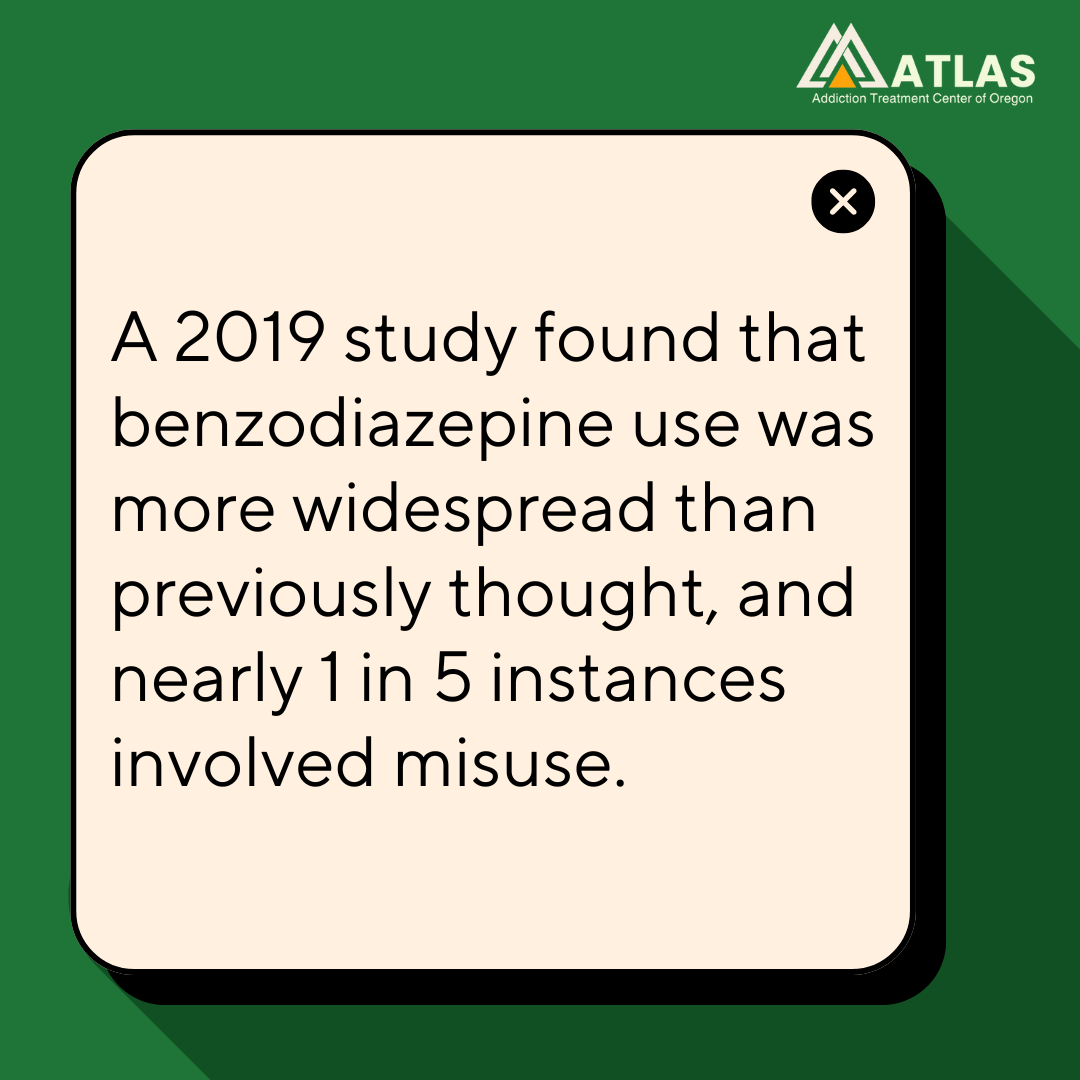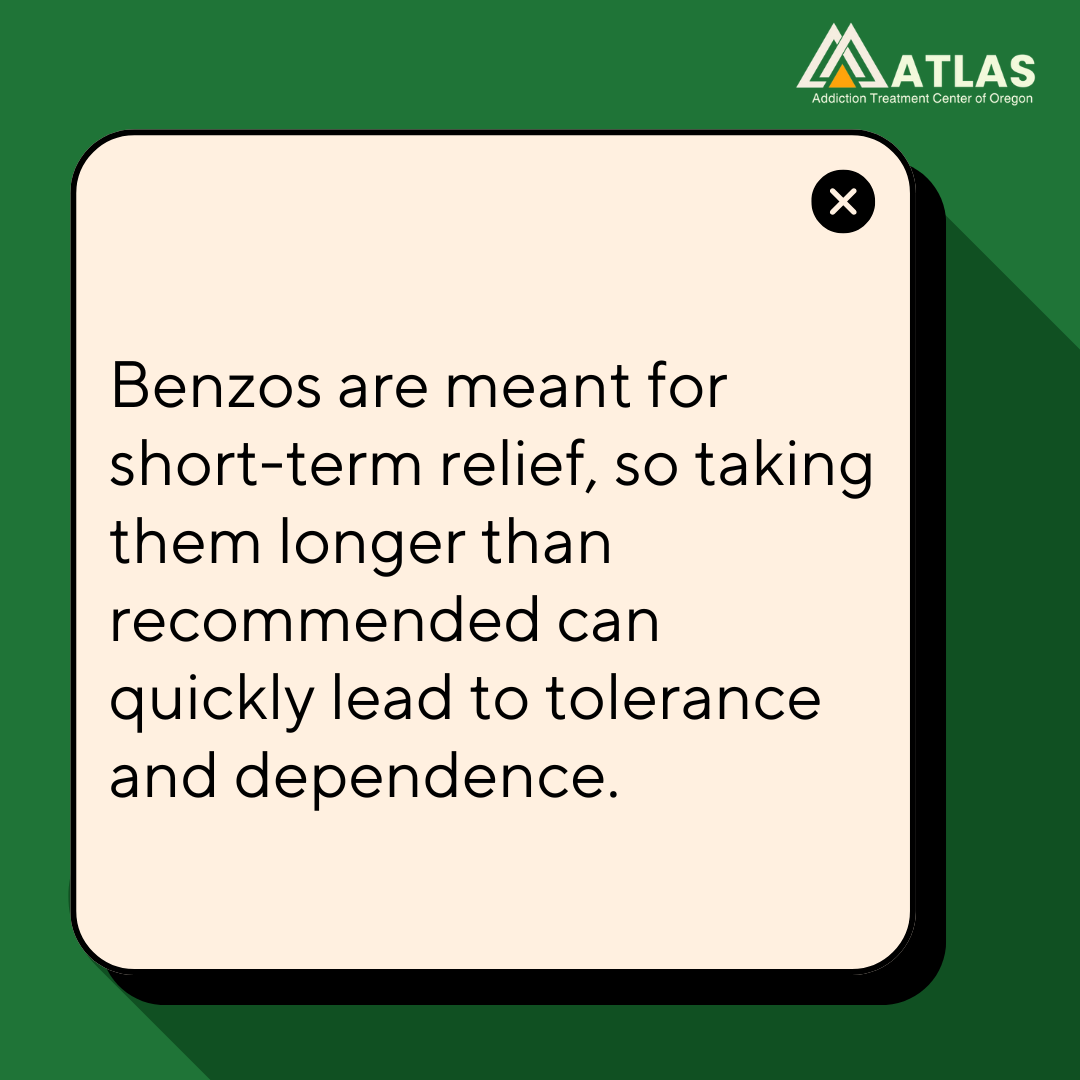
You might have started taking benzodiazepines to manage anxiety, get some sleep, or calm your body during seizures. At first, the relief felt real. But over time, you noticed that you became dependent on these pills. That’s where benzodiazepine addiction treatment often becomes necessary.
Benzodiazepines (or benzos) are widely prescribed medications, but they carry a real risk for dependence. A 2019 study found that benzodiazepine use was more widespread than previously thought, and nearly 1 in 5 instances involved misuse.
Understanding that shift — from helpful to harmful — is the first step. This blog will explore how benzo addiction develops, what’s happening in your brain, the risk factors that increase dependency, and why it can be so hard to stop without help.

Benzodiazepines are a class of prescription drugs used to treat conditions like anxiety, insomnia, seizures, and muscle spasms. Medications like Xanax®, Valium®, Ativan®, Klonopin®, and Restoril® are all part of this group. They’re often prescribed short-term to provide quick relief from intense symptoms.
Benzos work by enhancing the effect of GABA, a neurotransmitter that slows down activity in the brain and central nervous system. This calming effect is why they’re effective for treating anxiety and panic. However, it’s also what makes them risky if used long-term or without medical supervision.
Over time, your body can build tolerance, meaning you need more of the drug to feel the same relief. This cycle of increasing use can quickly lead to dependence. And for many people, that’s when they begin looking into benzodiazepine addiction treatment in Oregon or other support options.
Like any other type of addiction, benzodiazepine addiction doesn’t happen overnight. But here’s a caveat: It can sneak up faster than you expect.
Even when you take it as a prescription, benzos can lead to dependence if used long-term or without proper oversight. That’s why so many people eventually seek benzodiazepine addiction treatment to safely get off these medications.
But how does addiction to it develop?
As mentioned, your body gets used to the drug over time. So you need higher doses to feel the same calming effect.
Your brain begins to rely on benzodiazepines to function normally, making it difficult to go without them.
When you stop or drastically reduce use, symptoms like anxiety, insomnia, sweating, tremors, or even seizures can set in. This is why quitting benzos without medical supervision can be dangerous and in some cases, life-threatening.

Not everyone who takes benzodiazepines becomes addicted. However, certain factors raise the risk significantly. If you’re wondering how it got to this point, these are some of the most common contributors:
If you’ve ever tried to stop taking benzodiazepines without support, you already know it’s not just a matter of willpower.
One of the biggest obstacles is the fear of withdrawal symptoms, especially if you’ve experienced them before. Symptoms like anxiety, insomnia, irritability, and in some cases, seizures, can feel overwhelming and even dangerous without medical guidance.
Even beyond the physical side effects, there’s often a sharp return of the original symptoms the medication was treating, such as panic attacks or sleep disturbances. This rebound effect can make it feel like you’re back at square one, or worse. Without the right tools or a strong support system, it’s easy to fall into old patterns and lose hope.
Many people also struggle with denial or shame.
Because benzodiazepines are legal and prescribed by doctors, it can be hard to admit there’s a problem. But like with other substances, dependence can creep in gradually, mirroring the stages of drug addiction seen with more illicit drugs.
This is exactly why so many people turn to benzodiazepine addiction treatment. If you’re in Oregon, know that the state is home to reputable drug treatment centers to make quitting possible and safe.

Benzodiazepine addiction treatment is most effective when it’s comprehensive and tailored to your unique needs. Depending on the severity of your symptoms, you might enter an inpatient or IOP (intensive outpatient program) setting. Here's what treatment typically includes:
Withdrawal from benzos can be serious and life-threatening. A medical team helps you taper safely while monitoring symptoms around the clock.
Cognitive Behavioral Therapy (CBT), trauma-informed care, and other evidence-based therapies help you rebuild healthier thought patterns and coping skills.
Anxiety, PTSD, and depression often fuel benzo use. Treating both addiction and underlying mental health conditions gives you a stronger foundation for recovery.
Recovery doesn’t stop after detox. Treatment includes planning for life after rehab, including relapse prevention tools, sober support, and lifestyle changes.
If you’ve been mixing benzos with opioids, such as fentanyl, you may need combined treatment. Many centers offer fentanyl addiction treatment alongside benzo recovery for your safety.
Now, how do you choose from the many drug treatment centers in Oregon? To narrow down your choices, start by evaluating your prospects through these tips:
The benefit of seeking treatment locally is that Oregon-based providers often have a better understanding of the region’s unique challenges. These include housing, employment resources, cultural sensitivity, and community support.
In other words, you’re not just getting care. You’re finding people who genuinely understand what recovery means in your part of the world.

Some addictions can form quietly and sneak up on you, and benzodiazepine dependence is one of them. What begins as a prescription for anxiety or sleep can slowly evolve into something harder to control. But with the right treatment, support, and medical guidance, recovery is within reach.
Looking for the most trusted addiction treatment Oregon has to offer? Atlas Treatment Center is the best place to seek help. From compassionate admissions support to personalized, expert-led benzodiazepine addiction treatment, our team is committed to being your partner in long-term recovery. Reach out today to learn more!

Author
Emmy is a content specialist dedicated to helping brands boost their online presence and reputation through tailored, well-researched copy. With expertise across diverse niches—including mental health—she crafts messages that resonate with target audiences.


.webp)
Don't let addiction define your future. We're ready to support you every step of the way. Reach out to us for a free, confidential assessment.

